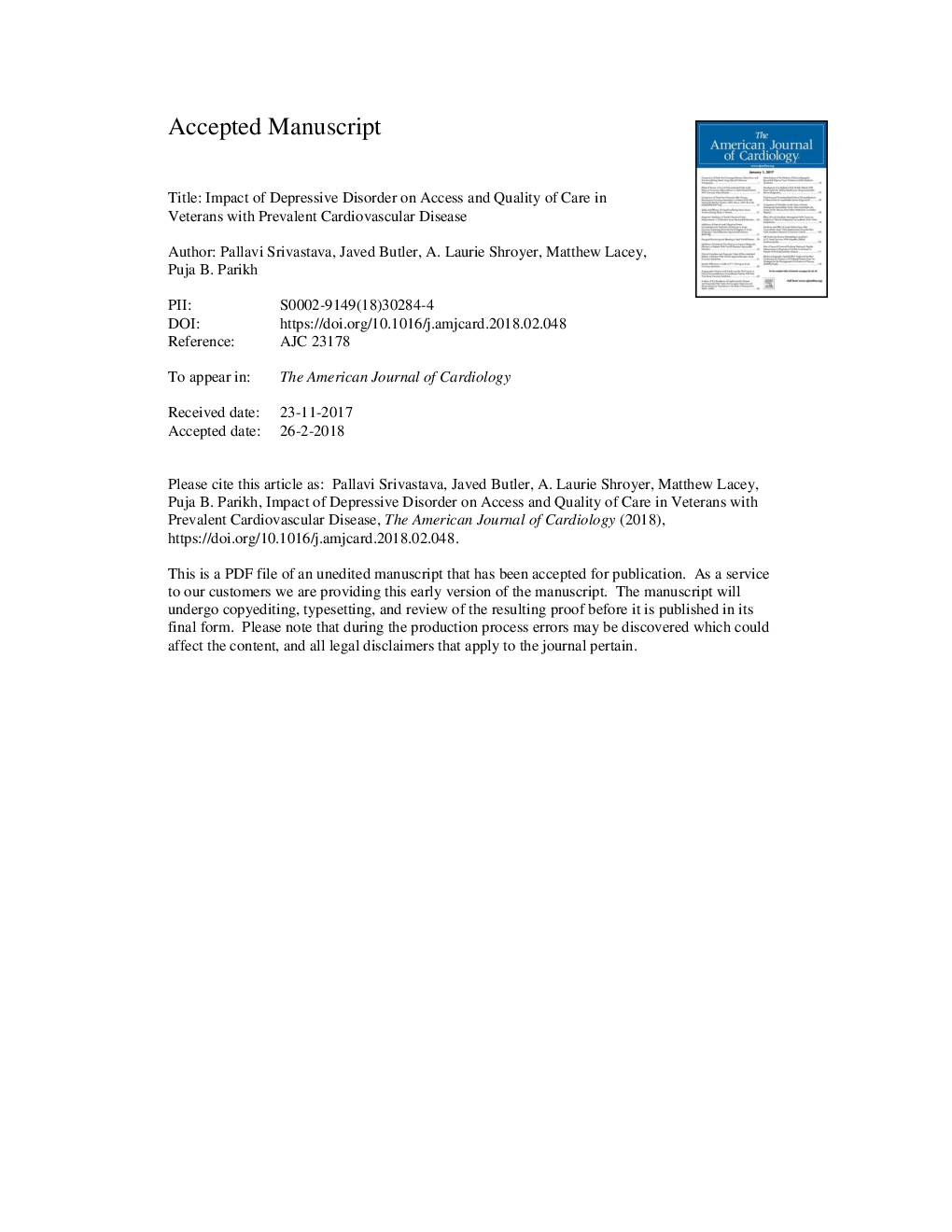| Article ID | Journal | Published Year | Pages | File Type |
|---|---|---|---|---|
| 8651237 | The American Journal of Cardiology | 2018 | 20 Pages |
Abstract
Although depressive disorders have been associated with increased risk of worse outcomes with cardiovascular diseases (CVDs), its relation with access to and quality of cardiovascular care is not well studied. Accordingly, we sought to assess the association between depressive disorders and access and quality of care among United States veterans with CVD. The 2013 Centers for Disease Control's Behavioral Risk Factor Surveillance Survey was utilized to identify a cohort of 13,126 veterans with CVD. Demographic and clinical history were recorded in adults with and without a depressive disorder (defined as self-reported diagnosis of depression, major depression, minor depression, or dysthymia). Among 13,126 veterans studied, a total of 2,889 (22.0%) adults had a depressive disorder whereas 10,237 (78.0%) did not. The veterans with a depressive disorder were younger, more often female and non-white, and had higher rates of multiple medical co-morbidities. They were more likely to report a delay in receiving medical care and financial barriers to seeking care and taking prescription drugs. They also reported significantly lower rates of aspirin and antihypertensive drug use. In multivariate analysis, depressive disorder was independently associated with higher risk of delay in receiving medical care (OR [odds ratio] 2.07, 95% CI [confidence interval] 1.65 to 2.60), financial barriers to medical care (OR 1.96, 95% CI 1.45 to 2.65), and prescription drugs (OR 1.45, 95% CI 1.02 to 2.08). In conclusion, depressive disorders were associated with impaired access to care among United States veterans with CVD.
Related Topics
Health Sciences
Medicine and Dentistry
Cardiology and Cardiovascular Medicine
Authors
Pallavi MBBS, Javed MD, A. Laurie PhD, Matthew MD, Puja B. MD, MPH,
